During a recent radio interview with Dr. Bernie Beitman, I shared how in certain Southern African traditions – and specifically that of the Xhosa – the process of ukuthwasa could be seen as a telling metaphor for the current COVID-19 situation humanity is facing.
What is thwasa?
Ukuthwasa (more commonly known as thwasa) is often simply understood as an illness. Yet it is not an illness per se but rather interpreted by the Xhosa peoples as a ‘state of calling’ to become a traditional healer (i.e.igqira, sangoma). The literal translation of thwasa is ‘the light of the new moon’ with added prefixes meaning ‘to lead to the light’ [1]. Others translate it simply as to ‘come out’ or ‘to be reborn’. [2]
The process of falling ill is however a preliminary phase for becoming a (spiritual) healer and is prevalent across many traditions throughout the world. It is often considered a prerequisite experience for the ‘shaman’s path’: a cleansing process that “washes away all that is bad, pitiful and weak, and…becomes a gateway to life” [2, 3]. The shamanic crisis is often seen as a form of ‘spiritual emergency’.
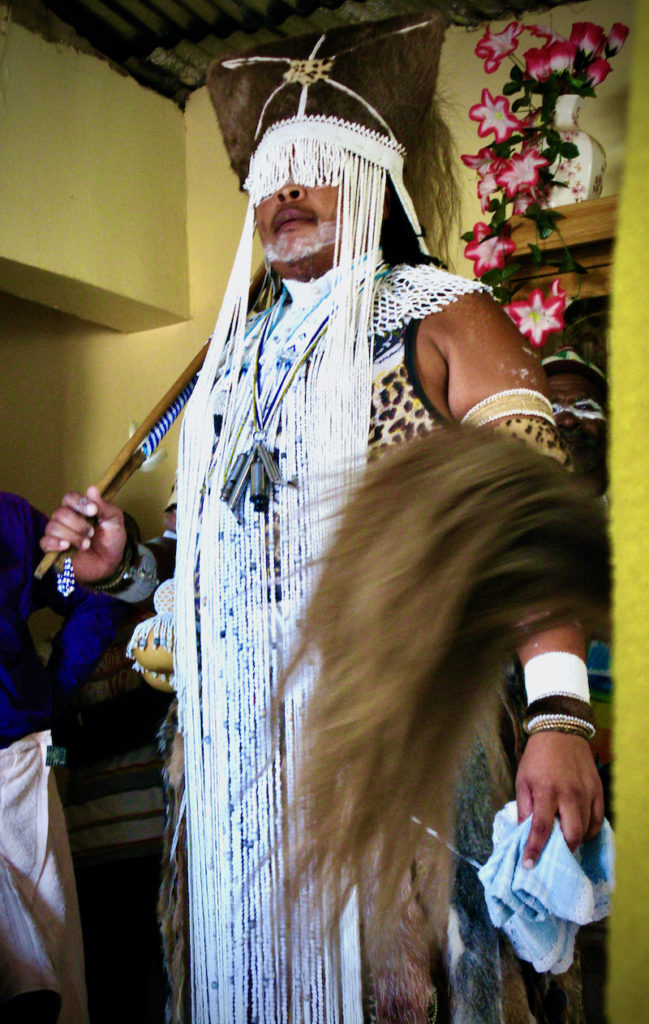
The symptoms of thwasa can manifest themselves in different ways, and include anxiety, fear, headaches, stomach pain, shortness of breath, mental confusion, visions (auditory and visual hallucinations), delusions, mood swings, and social isolation [2]. There may also be dreams of forests and wild animals or actual strange and symbolic encounters with animals of significance. Together, these symptoms – which cannot be cured by conventional (‘Western’) methods – are indicative of ‘a calling’ of the ancestors. A failure to respond to the call can result in further illness.
Such states (i.e. these physical and psychological manifestations) are often dismissed in the Western medical model as hysteria, neurosis, schizophrenia or a form of psychosis. However, it is notable that people with those diagnoses rarely serve one’s community. In contrast, the shaman (igqira, sangoma) is generally defined by their contribution to – and ability to facilitate healing for – their immediate communities [2].
Furthermore, for many traditional cultures, this type of sickness and suffering is viewed as a manifestation of the body’s inherent wisdom, something to which we only need to surrender to in order to reach a perception capable of revealing the true basis of our earthly existence [2,3]. Therefore, the sickness is regarded as a call for self-realization and self-development.
Evidently, we can draw numerous parallels with humanity’s current predicament: the sickness, the sense of ‘being called’ into something – and by something bigger or ‘otherly’ than ourselves, and the vivid realisation that a failure to authentically respond could be disastrous. There is the hope for a deep cleansing which could open a new gateway for how we may better live life. Last but not least, there is service to community; in humanity’s case – the community which is all life on Earth.
But just like for many Xhosa, the diagnosis of ukuthwasa is often resisted, and the sick person and the relatives seek various opinions in order to have ‘the calling’ confirmed or negated. It is resisted because the training and treatment is long, demanding and expensive [2].
And so it is also appears now for humanity… <scroll for more below>
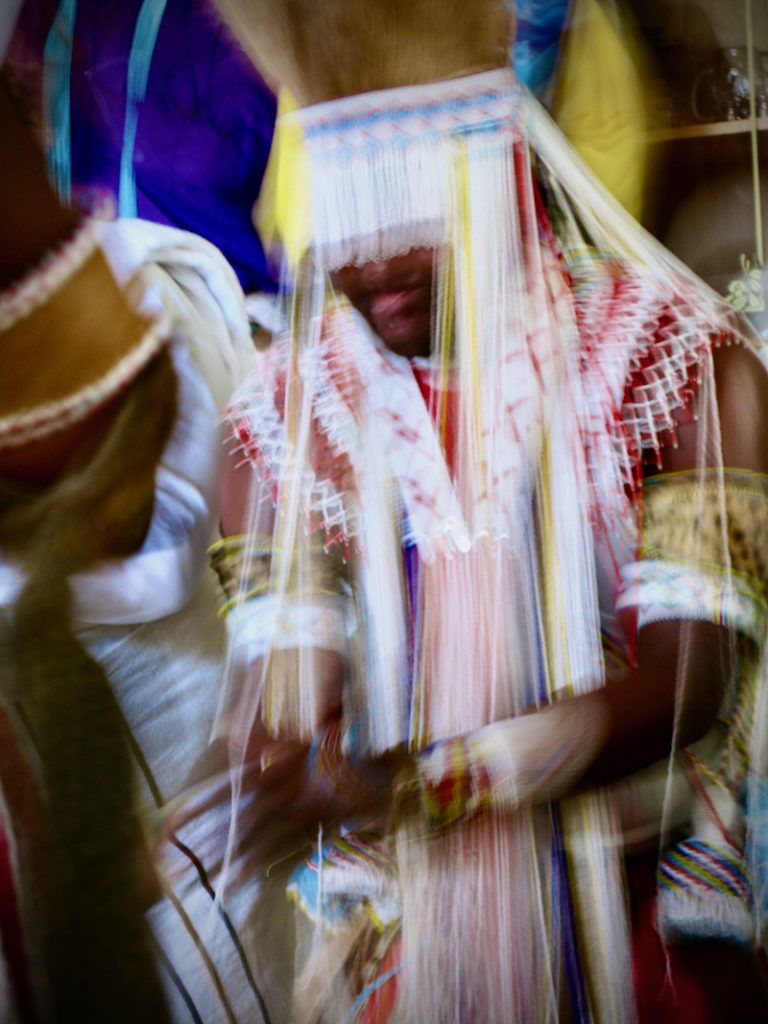
Can we learn anything more from this metaphor?
Once Xhosa initiates accept their calling, they undergo training – an extensive apprenticeship – to divine and heal people. Divining is to have acquired deeply intuitive or extrasensory (‘paranormal’) understanding of what is wrong with those who are ill. In the Xhosa tradition (and others), it requires praying to ancestors, divining through various means (e.g. ‘throwing the bones’), working with dreams and consulting the inherent wisdom – including the symbols and signs – in and of the earth [2].
Serious divinations may be done in several locations – sacred sites, caves, mountain tops, forests; if the same indication is present in three different locations then one becomes confident of the answer. [2]
Healing is viewed as a form of mediation between the spiritual and physical world. It is therefore becomes necessary to perform some kind of a ceremonial rite, as way of integrating the insights on more than one level. It integrates the individual into the community while on another level brings them into contact with the deeper layers of subconscious. [2]
Critically, the igqira (shaman) stresses the concept of community responsibility, with their function being to help integrate the individual into the community. While Western psychiatry often isolates the individual in an institution, the igqira always treats the patient with their family [2]. And whereas many Western approaches centre on psychotherapy or analysis, the igqira centres on action.
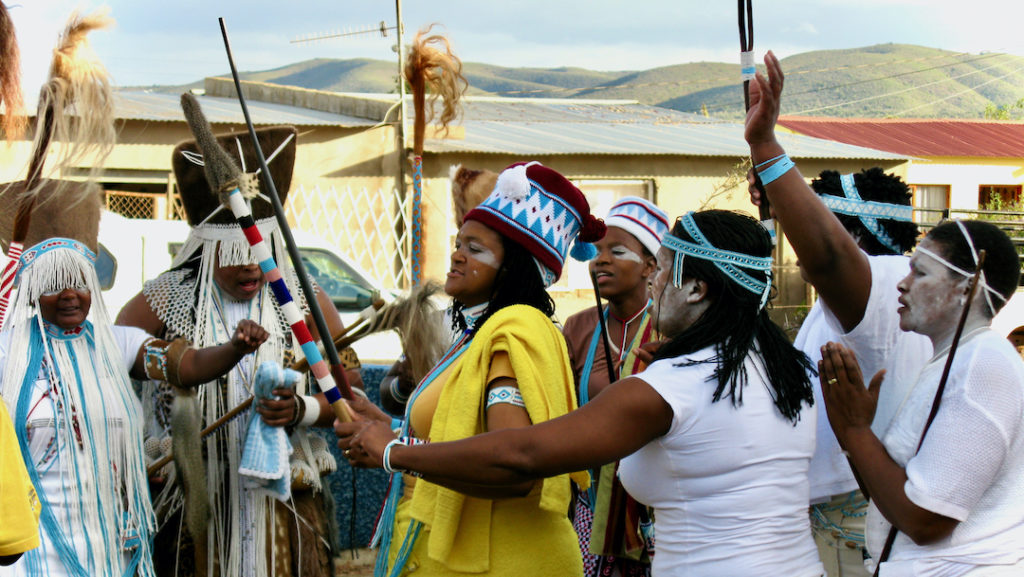
So if we as humanity accept our calling, a level of training is required. And if our core illness is our distorted relationship with the rest of nature then we are well advised to seek guidance through i) elders or cultures who have, over millennia, retained strong and harmonious bonds with nature or; ii) our direct embodied experiences in communion with Earth herself.
For the latter, it invites deep listening and attentiveness.
How can we better commune, consult and connect with the wisdom of Earth? What signs may be indicative of an insight toward ‘a next step’? What personal rituals will we take to Earth in order to better integrate our (humanity’s) own healing at this time? And instead of isolating ourselves further from Earth and getting caught up in endless analysis, what direct embodied actions will we take to heal our relationship with all life?
Sources:
All images by Matthew Zylstra, with permissions from the Ruka family.
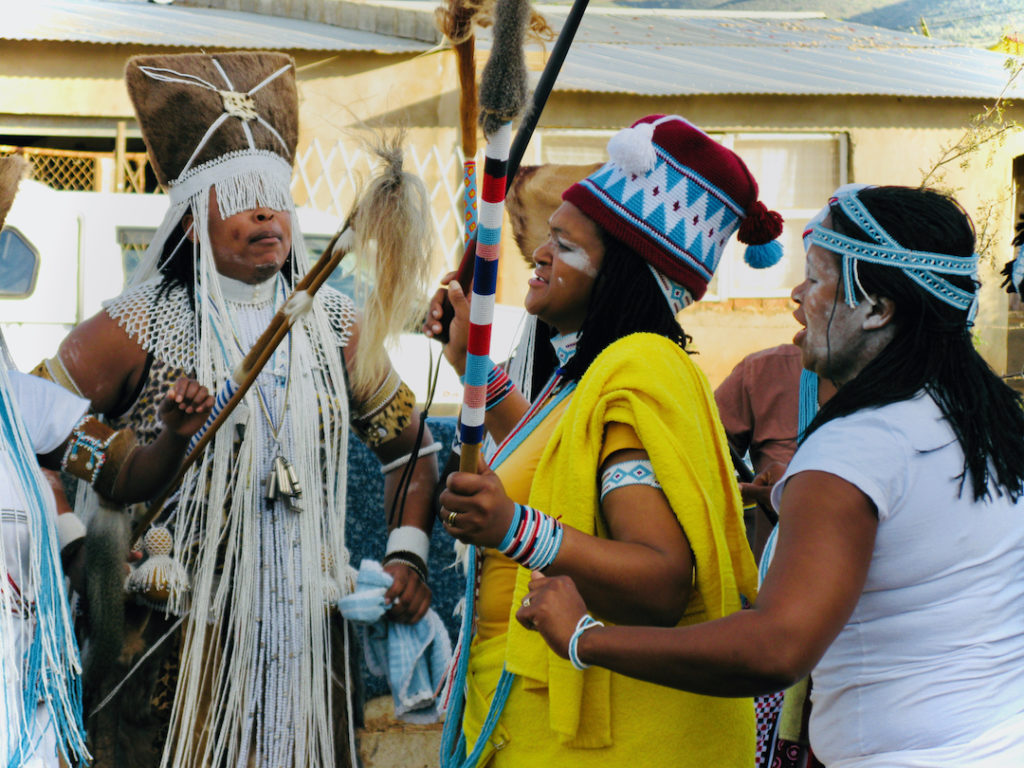

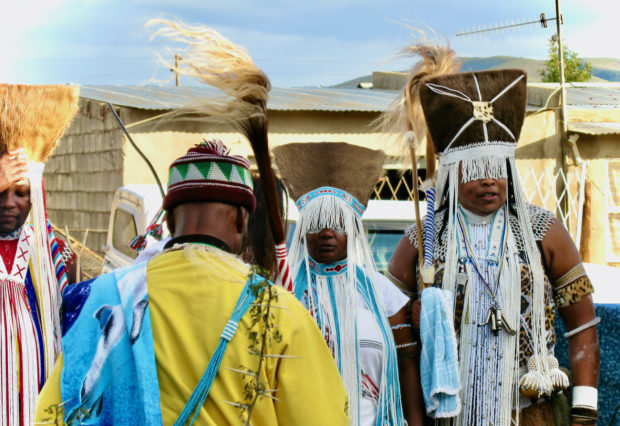

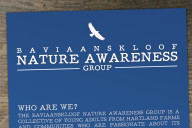
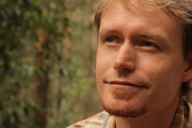






8 Comments
How do you tell the different between serious psychotic illness and a calling?
It’s a good question Michele and one that I’m not really culturally qualified to answer. But, as I understand it, if you were to experience an extended illness (with any or more of telltale symptoms described above) and this illness is unable to be resolved satisfactorily by Western medicine then you would consult an experienced and reputable ‘sangoma’ / ‘traditional healer’ and they would perform their own cultural assessment to determine whether in fact it is ‘a calling’. I would recommend having a look at Booi’s thesis which I referenced in my post above as it speaks about this. See: https://core.ac.uk/download/pdf/145055556.pdf
Michelle – a calling you feel in your soul. It wraps its arms around you and doesn’t let go until you acknowledge and feel the presence. When you heed the calling, you feel peace and purpose. I know. I have the calling. 🙏
I like the way you poetically (and somatically) express it as wrapping its arms around your soul – and it not letting go until acknowledged or heeded.
Michele, there you can look for literature on spiritual emergencies, as sciamanic crisis is considered as a typology of spiritual crisis or emergency (such as kundalini awakening, near death experience, peak experiences and many others).
I suggest that you start by reading “Spiritual emergencies” by Stanislav and Christina Grof. David Lukoff wrote many academic articles and thanks to him the topic is now present in the DSM. You can also have a look at the website of ISEN, International Spiritual Emergency Network. As a transpersonal psychologist, I am part of the Italian Group within ISEN. You can also drop me an email at michela.balbi@psypec.it.
Thanks for these important resources Michela. Grofs’ work in particular seems very relevant.
Good day
This topic is very interesting and I woul like clarity as how to go about it.
I’m one of the spiritual gifted people and it’s difficult for me to continue with it. I’ve been sick nearly died but thanks God and my ancestors that I’m still around.
I get massages from them e.g they can tell me most of the things about people’s problems and those who are spiritually gifted and I guide them .
But it’s difficult for me to fulfill my journey.I want to know how can I get a guidance as what to do with my gift so l can be able to fulfill my task of helping people.
Thanks
I understand this and know with out a doubt I have these gifts! What’s left of my life I’ll continue to push us forward to the change we all long for! Thank you. Take a deep breath exhale and don’t be afraid to follow the light, the truth and the joy awaiting us.